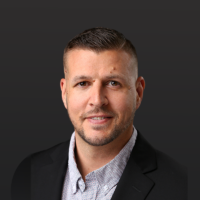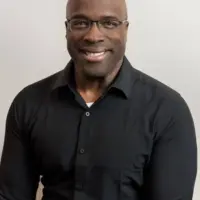About Steps Recovery Center
We take a holistic approach to treating drug addiction that includes treating the whole person, and find that it tends to be more successful, especially since drug addiction affects every aspect of a person’s life. With a customized and individualized program, a holistic approach just makes sense. It affords an opportunity to meet the patient’s physical and psychological needs and allows them to engage physically, emotionally, and mentally. These holistic techniques support addiction treatment in several ways: Reduced physical symptoms of addiction and withdrawal, such as anxiety or muscle aches and pains Better emotional balance More spiritual grounding Healthier eating habits, resulting in a neurochemical balance. Healing from Trauma and Addiction Through DBT.
Dialectical behavior therapy (DBT) gives individuals new aptitudes to oversee excruciating feelings and reduce interpersonal frustrations. DBT explicitly centers around giving restorative abilities in four crucial aspects. Mindfulness centers around improving a person’s capacity to acknowledge and be available in the moment. Distress tolerance is designed for expanding an individual’s resilience of negative feeling, as opposed to attempting to escape from it. Emotional regulation consists of tools to oversee and change extreme feelings that are messing up an individual’s life. Interpersonal effectiveness comprises of methods that permit an individual to speak with others in a manner that is confident and assertive, keeps up confidence and self respect, and reinforces connections and relationships.
Treating the Underlying Issues- Trauma & PTSD
When someone experiences a traumatic event or on-going trauma, the brain sometimes shuts down the memory to protect the individual. When a triggering object, words, actions, or events occur, it sends a signal to the brain that the person is in danger and alerts them through the fight or flight response. People can go years or decades without knowing why they get emotional or get bodily symptoms, such as anxiety when these triggers pop up. Our treatment for trauma incorporates several elements that include dynamic psychotherapy, cognitive behavioral therapy, EMDR, trauma process groups, and more. There are several trauma disorders in which trauma process groups can help: post-traumatic stress disorder (PTSD), acute stress disorder (ASD), childhood trauma disorders, dissociative disorders, and adjustment disorders. The program can be individual or in a group setting. Our therapeutic team will determine the most appropriate modality and frequency.
Latest Reviews
Rehab Score
Gallery


Accepted Insurance




Other Forms of Payment
Self-pay involves paying for treatment out of your own pocket. You can use savings or credit, get a personal loan, or receive help from family and friends to fund your treatment. If you don't have insurance or your insurance plan doesn't cover a specific program, self-pay can help ensure you still get the care you need.
Private insurance refers to any kind of healthcare coverage that isn't from the state or federal government. This includes individual and family plans offered by an employer or purchased from the Insurance Marketplace. Every plan will have different requirements and out of pocket costs so be sure to get the full details before you start treatment.
Military members, veterans, and eligible dependents have access to specific insurance programs that help them get the care they need. TRICARE and VA insurance can help you access low cost or no cost addiction and mental health treatment. Programs that accept military insurance often have targeted treatment focused on the unique challenges military members, veterans, and their families face.
Addiction Treatments
Levels of Care
A partial hospitalization program (PHP) is a short-term form of intensive rehab, usually for those with acute symptoms that are hard to manage but don’t require 24-hour care. PHPs have structured programming (i.e. individual and/or group therapy), and usually meet 3-5 days a week for around 6 hours (i.e. 9am-3m). Some PHPs are residential (patients sleep on site) and some are not, so patients sleep at home. PHPs can last from 1-6 months, and some offer transportation and meals.
Intensive Outpatient Programs (IOP) are for those who want or need a very structured treatment program but who also wish to live at home and continue with certain responsibilities (such as work or school). IOP substance abuse treatment programs vary in duration and intensity, and certain outpatient rehab centers will offer individualized treatment programs.
Outpatient Programs (OP) are for those seeking mental rehab or drug rehab, but who also stay at home every night. The main difference between outpatient treatment (OP) and intensive outpatient treatment (IOP) lies in the amount of hours the patient spends at the facility. Most of the time an outpatient program is designed for someone who has completed an inpatient stay and is looking to continue their growth in recovery. Outpatient is not meant to be the starting point, it is commonly referred to as aftercare.
Residential treatment programs are those that offer housing and meals in addition to substance abuse treatment. Rehab facilities that offer residential treatment allow patients to focus solely on recovery, in an environment totally separate from their lives. Some rehab centers specialize in short-term residential treatment (a few days to a week or two), while others solely provide treatment on a long-term basis (several weeks to months). Some offer both, and tailor treatment to the patient's individual requirements.
Treatments
The goal of treatment for alcoholism is abstinence. Those with poor social support, poor motivation, or psychiatric disorders tend to relapse within a few years of treatment. For these people, success is measured by longer periods of abstinence, reduced use of alcohol, better health, and improved social functioning. Recovery and Maintenance are usually based on 12 step programs and AA meetings.
When you enter a drug rehab in Utah, the process usually involves four stages: treatment initiation, early abstinence, maintaining abstinence, and advanced recovery. Treatment methods can rely on medications, counseling, or both, in either an outpatient or inpatient setting.
Substance rehabs focus on helping individuals recover from substance abuse, including alcohol and drug addiction (both illegal and prescription drugs). They often include the opportunity to engage in both individual as well as group therapy.
Programs
Adult rehab programs include therapies tailored to each client's specific needs, goals, and recovery progress. They are tailored to the specific challenges adult clients may face, including family and work pressures and commitments. From inpatient and residential treatment to various levels of outpatient services, there are many options available. Some facilities also help adults work through co-occurring conditions, like anxiety, that can accompany addiction.
Clinical Services
Whether a marriage or other committed relationship, an intimate partnership is one of the most important aspects of a person's life. Drug and alcohol addiction affects both members of a couple in deep and meaningful ways, as does rehab and recovery. Couples therapy and other couples-focused treatment programs are significant parts of exploring triggers of addiction, as well as learning how to build healthy patterns to support ongoing sobriety.
Group therapy is any therapeutic work that happens in a group (not one-on-one). There are a number of different group therapy modalities, including support groups, experiential therapy, psycho-education, and more. Group therapy involves treatment as well as processing interaction between group members.
In individual therapy, a patient meets one-on-one with a trained psychologist or counselor. Therapy is a pivotal part of effective substance abuse treatment, as it often covers root causes of addiction, including challenges faced by the patient in their social, family, and work/school life.
Life skills trainings involve all the skills a person must have in order to function successfully in the world. These include time management, career guidance, money management, and effective communication. Truly successful addiction recovery is based on the ability to not only live substance-free, but to thrive. Life skills teaches the practical necessities of functioning in society, which sets clients up for success in life, and therefore sobriety.
Staff & Accreditations
Staff

Micah Niles
General Manager

Robert Mendenhall
Medical Director

Blake Rapier
Assistant Medical Director

Julie Jackson
Director of Outpatient Operations

Desmond Lomax
Clinical Consultant
Accreditations

The Joint Commission, formerly known as JCAHO, is a nonprofit organization that accredits rehab organizations and programs. Founded in 1951, the Joint Commision's mission is to improve the quality of patient care and demonstrating the quality of patient care.
Joint Commission Accreditation: Yes

LegitScript has reviewed Steps Recovery Center as part of their certification program, and has determined that it meets the LegitScript standards for legality, safety and transparency.
LegitScript verified in December 2020

The National Association of Addiction Treatment Providers (NAATP) is a professional association that represents organizations in the field of addiction services. Founded in 1978, NAATP's mission is to advance addiction services and ensure that high-quality addiction treatment is available and accessible.
NAATP Member: Yes
Contact Information
3638 Sugar Leo Rd, St.
Saint George, UT 84790




